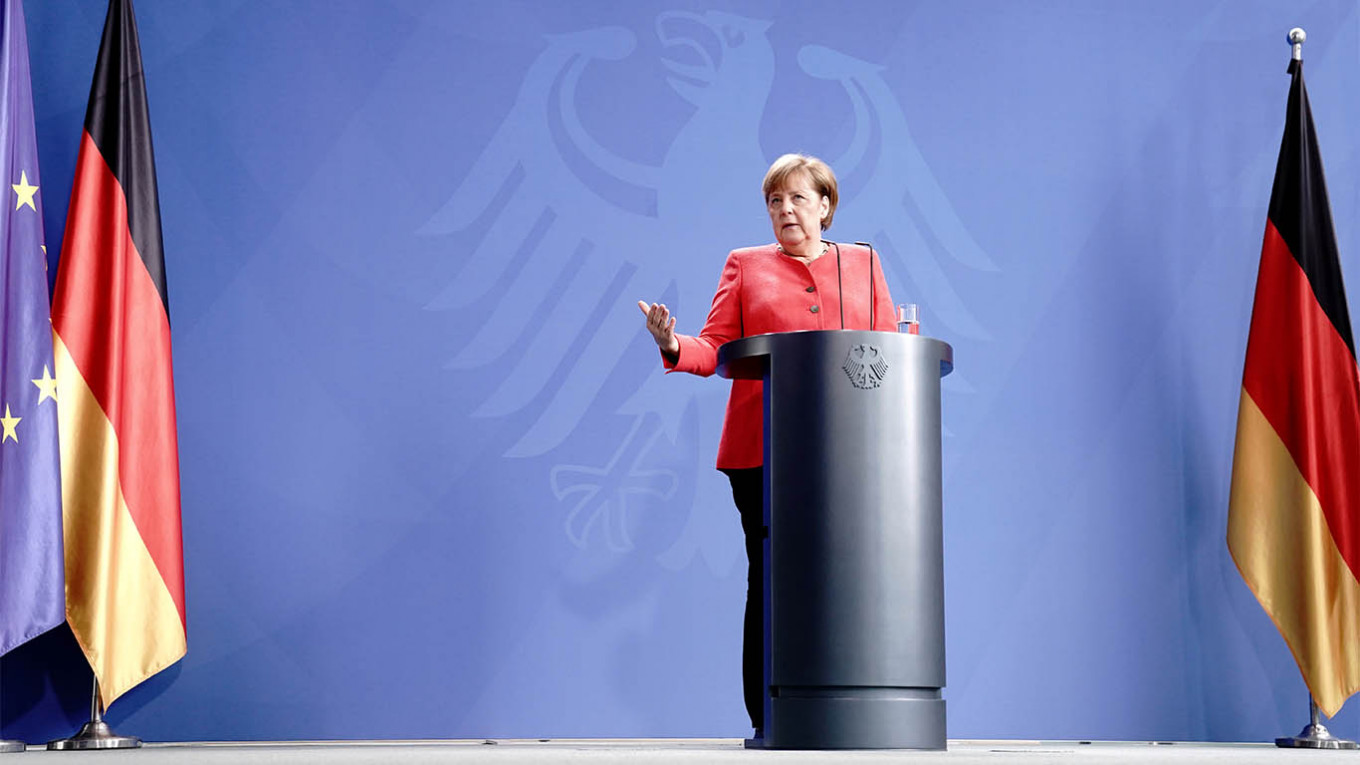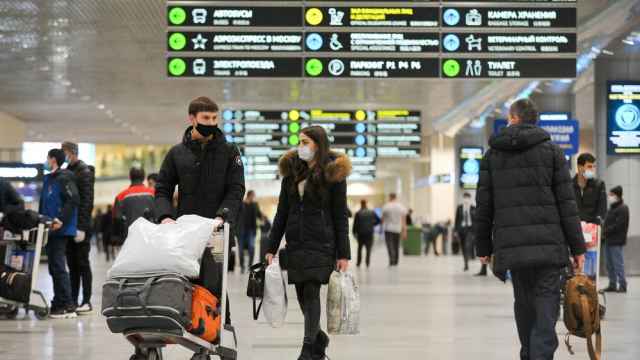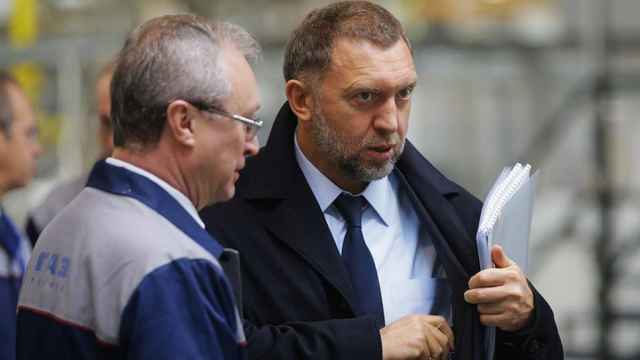The European Union has agreed to extend punishing sanctions against Russia over the conflict in Ukraine by six months, German Chancellor Angela Merkel said Friday.
The sanctions, which target whole sectors of the Russian economy including its valuable oil businesses, were due to expire this month but "would be extended by six months," said Merkel after a video conference summit with fellow leaders of the bloc.
The measures over Russia's role in the conflict were first imposed after Malaysian Airlines flight MH17 was shot down over rebel-held eastern Ukraine in 2014 and have been renewed every six months ever since.
Germany and France have repeatedly sought to broker peace between Russia and Ukraine.
Despite successfully getting both sides to endorse the 2015 Minsk peace accords, it has been difficult getting the two countries to fully implement the deal.
"The progress (on the Minsk accords) is not one that would allow us to recommend against extending sanctions against Russia," said Merkel.
Thousands have been killed since pro-Russia militias in eastern Ukraine launched a bid for independence in 2014, kicking off a conflict that deepened Russia's estrangement from the West.
The latest extension of the wide-ranging sanctions also came after a row between Germany and Russia escalated as German prosecutors accused Moscow of ordering the murder of a Georgian man in Berlin's Tiergarten park.
Merkel's government has warned of new sanctions over the case that has been likened to the poisoning of former Russian agent Sergei Skripal in Britain in 2018.
She has always stressed the importance of keeping communications open with Russia, but has in recent weeks sharpened her tone.
The German leader has expressed her exasperation at several hacking attacks that Berlin believes were carried out by Moscow.
Merkel revealed in May that Russia had targeted her in hacking attacks, saying she had concrete proof of the "outrageous" spying attempts.
The German government has said it will seek in Brussels to use the EU cyber sanctions regime against those responsible for a 2015 hacking attack on the Bundestag.
A Message from The Moscow Times:
Dear readers,
We are facing unprecedented challenges. Russia's Prosecutor General's Office has designated The Moscow Times as an "undesirable" organization, criminalizing our work and putting our staff at risk of prosecution. This follows our earlier unjust labeling as a "foreign agent."
These actions are direct attempts to silence independent journalism in Russia. The authorities claim our work "discredits the decisions of the Russian leadership." We see things differently: we strive to provide accurate, unbiased reporting on Russia.
We, the journalists of The Moscow Times, refuse to be silenced. But to continue our work, we need your help.
Your support, no matter how small, makes a world of difference. If you can, please support us monthly starting from just $2. It's quick to set up, and every contribution makes a significant impact.
By supporting The Moscow Times, you're defending open, independent journalism in the face of repression. Thank you for standing with us.
Remind me later.






